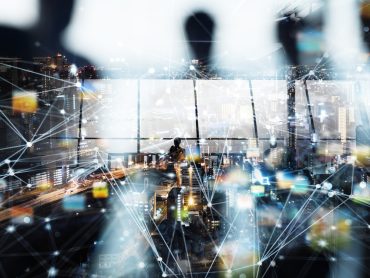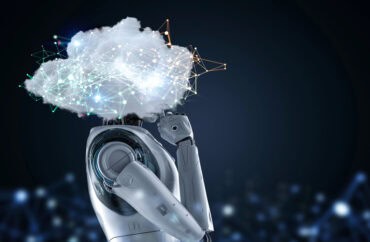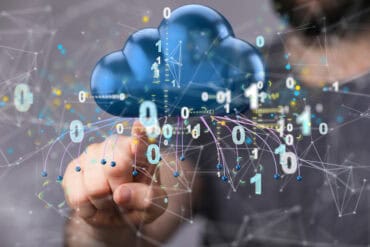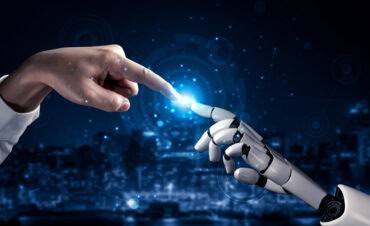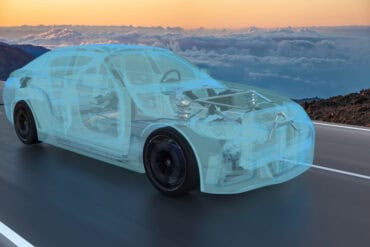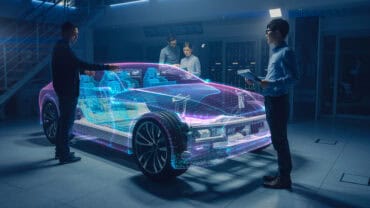
2025 will be defined by advancements in AI, DevOps practices, and data management solutions. Organizations that embrace innovation while addressing security and talent challenges will set themselves apart as leaders in an ever-evolving digital world.
As AI and DevOps continue to converge, 2025 is poised to be a transformative year for businesses developing, deploying, and managing technology. AI is becoming an integral part of operations, while DevOps practices evolve to meet the demands of faster, more secure deployments. The year ahead promises advancements that will redefine the digital ecosystem, from scaling AI with innovative infrastructure to refining development processes.
The rapid advancements in AI and DevOps are reshaping how businesses operate, develop software, and manage data. 2025 is set to bring new trends and challenges that will define the future of IT and development practices.
Scaling AI with Advanced Data and Infrastructure Solutions
Managing the data and infrastructure supporting AI workloads will become a top priority in 2025. Distributed data environments, skyrocketing GPU demands, and the need for seamless access to diverse datasets will drive innovation.
Christian Buckner, SVP of Analytics and IoT at Altair, predicts a more grounded approach to generative AI as it matures. “By 2025, the initial hype around generative AI will level off as the technology evolves to meet specific business needs. Foundation models will become more advanced, delivering accurate and relevant responses. Tools for integrating GenAI into operations and establishing governance will become crucial, alongside platforms for creating AI agents that automate business processes and deliver direct insights to users.”
Haoyuan Li, Founder and CEO of Alluxio, highlights the urgency of overcoming data access challenges. “Organizations will need to efficiently manage data access across their distributed environments while minimizing data movement and duplication. Technologies that provide fast, concurrent access to data regardless of its location will become critical,” Li says.
At the same time, the rising costs of AI model training will push enterprises to maximize GPU utilization. “Maximizing GPU utilization will become the primary design goal for modern data centers, driving innovations in hardware and software to sustain massive read bandwidths and minimize checkpoint-saving times,” Li adds.
See also: With Great Innovation Comes Great Risk: The Impact of GenAI on Cybersecurity
AI Security and Data Governance
As AI adoption accelerates, so do the risks. From covert malware in AI models to compliance challenges in HR applications, 2025 will highlight the need for thoughtful oversight and robust data governance.
Christian Buckner (Altair) highlights the transformative potential of knowledge graphs in bridging the gap between GenAI and users. “Knowledge graphs provide a semantic layer that describes enterprise data ecosystems in human terms, creating new logical connections between previously disconnected data sources. This capability allows GenAI models and business users to understand and produce real insights from data.”
Michael Lieberman, CTO and co-founder of Kusari, warns, “AI will become both more widespread and harder to detect. We’ve already seen cases where free models were discovered to be malware. These attacks are likely to increase and become more covert, introducing backdoors or harmful behaviors.”
Krishna Subramanian, Co-founder and COO of Komprise, adds that unstructured data governance processes will mature. “Protecting corporate data from leakage and misuse while preventing unwanted, erroneous results of AI will be top priorities. Automated workflows for data classification and orchestration will become critical to managing data efficiently at scale,” Subramian explains.
DevOps and Cloud-Native Development Trends
As software development accelerates, new and continuing DevOps trends will shape the IT landscape in 2025. Derek Ashmore, Application Transformation Principal at Asperitas, highlights GitOps as a key practice. “GitOps uses Git as a central source of truth for managing infrastructure and application configurations, providing visibility and enabling automated testing and provisioning,” he explains. Expect GitOps adoption to grow as organizations embrace its efficiency.
Christian Buckner (Altair) emphasizes the rise of agentic AI in transforming data analytics. “AI Agents will automate insights and recommendations, reducing the need for business leaders to ask specific questions. This level of automation will help organizations uncover deeper connections within their data and make more strategic decisions.” However, Altair underscores the importance of governance in maintaining trust in AI-driven suggestions.
As software development accelerates, new and continuing DevOps trends will shape the IT landscape in 2025. Derek Ashmore (Asperitas) highlights GitOps as a key practice. “GitOps uses Git as a central source of truth for managing infrastructure and application configurations, providing visibility and enabling automated testing and provisioning,” he explains. Expect GitOps adoption to grow as organizations embrace its efficiency.
Ashmore also foresees the expansion of platform engineering, where developers are provided with pre-configured tools to accelerate application development. “Platform engineering gives software teams the car instead of a collection of car parts,” he says, emphasizing its role in streamlining processes.
AIOps, which supports the operations necessary for developing and deploying AI, will dominate DevOps strategies. With AI moving from experimentation to implementation, policy-based governance and infrastructure static code analysis will ensure compliance and security in increasingly complex environments.
Scott Wheeler, Cloud Practice Lead at Asperitas, adds that zero-trust security models will become foundational across IT environments. “Old authentication models no longer work. Zero trust will replace them as the default standard for securing applications and services,” he predicts.
Finally, serverless computing will continue to rise, enabling developers to focus on application logic without managing infrastructure. While not suitable for all use cases, serverless will remain a preferred option for scalable, event-driven applications.
Talent Development and AI-Friendly Culture
The rapid evolution of AI skills will challenge businesses to prioritize continuous learning and foster an AI-friendly culture. Nicole Helmer, VP of Skills and AI at Degreed, explains, “Companies have a long wish list of skills for AI Engineers, but the landscape evolves so quickly that even top talent must continually learn to stay relevant.”
Building a thriving AI culture also involves democratizing data access and educating employees. Matheus Dellagnelo, co-founder and CEO at Indicium, emphasizes the importance of aligning data with business needs, stating, “Businesses must simplify data access for non-technical stakeholders. Generative AI and no-code analytics tools will play a role, but organizations need strong data management processes to ensure everyone can benefit.”
By treating learning and data accessibility as ongoing priorities, businesses can unlock the full potential of their AI investments while empowering employees to make data-driven decisions.
Looking ahead
2025 will be defined by advancements in AI, DevOps practices, and data management solutions. Organizations that embrace innovation while addressing security and talent challenges will set themselves apart as leaders in an ever-evolving digital world.


